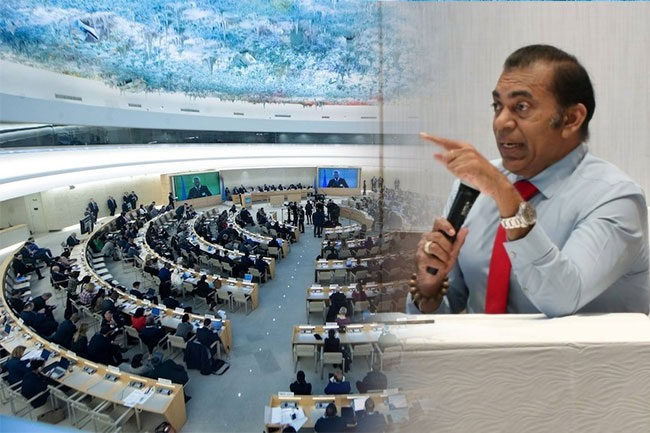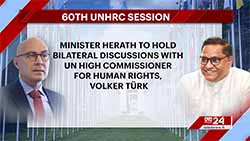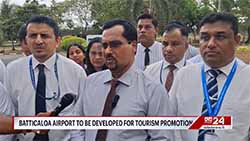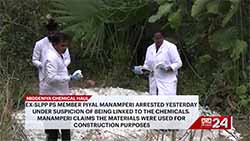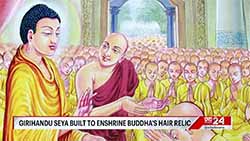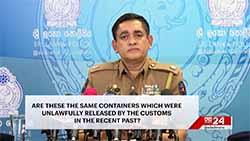UNHRC Resolution: Will India, South Africa and Japan back Sri Lanka?
September 8, 2025 11:24 am
The 60th session of the United Nations Human Rights Council (UNHRC) will be extremely decisive for Sri Lanka, former Commissioner of the Human Rights Commission of Sri Lanka (HRCSL) Attorney-at-Law Prathiba Mahanamahewa stated.
The 60th session of the UNHRC is scheduled to commence today (08) and the interactive dialogue on the report of the Office of the High Commissioner for Human Rights is scheduled to take place this afternoon.
Prathiba Mahanamahewa said that during this session, a resolution against Sri Lanka is likely to be proposed, and that it is a continuation of a series of similar resolutions that have been brought forward since 2010.
He noted that by continuously presenting such resolutions, allegations are being made that Sri Lanka is a country that systematically violates human rights, particularly in relation to alleged violations of the human rights of people in the Northern Province.
Mahanamahewa emphasized that if countries like India, South Africa, and Japan can be won over to support Sri Lanka, the resolution cannot proceed further.
He also mentioned that a draft of the resolution against Sri Lanka had already been submitted to the Ministry of Foreign Affairs about a month ago.
Former Human Rights Commissioner Prathiba Mahanamahewa stated further:
“They are trying to bring another resolution against Sri Lanka. But this is not something new. This is a continuation of resolutions that have been coming since 2012. It’s been evolving from the one in 2010. There were resolutions in 2012, 2013, 2014, 2015, and 2022—now we’re at the 60th session. All these resolutions have followed a similar format.”
“In 2015, Sri Lanka even co-sponsored a resolution during the time of Foreign Minister Mangala Samaraweera. The government then agreed to certain recommendations. But when governments change, the situation also changes.
“The most influential group at the Geneva Human Rights Council is the pro-LTTE diaspora. They continuously bring up allegations of human rights violations committed by Sri Lanka during the war—mass graves, the number of missing persons, and the Missing Persons Commission, none of which have yet received a clear response from any government.
“Now, the diaspora expects answers from the current government. But Sri Lanka has made progress—there’s an Office for Missing Persons and institutions for reparations, many of which are functioning well. Still, this group is not satisfied.
“Their goal is to continue bringing these resolutions to label Sri Lanka as a routine human rights violator. They claim that police and military forces in Sri Lanka are involved in continuous violations, especially in the North. They exert intense pressure under the banner of alleged war crimes during the conflict.
“The diaspora does not trust Sri Lankan courts. They want these investigations to be taken to a war crimes tribunal. For that, they have already conducted international investigations outside of Sri Lanka and compiled reports on human rights violations.
“Now, they’re pushing hard for Sri Lanka to ratify the Rome Statute, which would bring Sri Lanka under the jurisdiction of the International Criminal Court (ICC). This is a very serious matter. If accepted, all the evidence they’ve compiled can be submitted to the ICC Prosecutor, and indictments can be brought against Sri Lankan individuals. If that happens, arrests and prosecutions could follow.
“Also, many Sri Lankans are now living overseas. Some of them claim that their parents or spouses were taken to camps and have since disappeared. Several commissions have investigated these matters. There’s the Commission on Lessons Learned and Reconciliation, the Paranagama Commission of 2015, and others. These issues keep resurfacing.
“Therefore, a permanent solution is needed. This is why we must properly establish mechanisms like a Truth Commission, Commission on Investigation, and Office for Reparations. If not, this will become a serious problem—especially with demands to excavate mass graves. The current proposals, once adopted, put pressure on the government to act.
“This pressure mainly comes from the pro-LTTE international diaspora, supported by countries like Canada. So Sri Lanka must take a strong stand.
“The countries proposing the resolution against Sri Lanka are the UK and Canada. We often lose in such instances because left-leaning leaders in various countries support those proposing the resolutions and lack sufficient support from the Global South.
“But we have a chance if we can win over India. India, while sometimes aligned with China, is a key player. The U.S. is not very friendly towards Sri Lanka right now, but fortunately, the U.S. is not directly involved this time—their representatives have stepped back.
“So, we need to win India, South Africa, and especially Japan. If we can get their support, this resolution will not move forward. Sanctions cannot be imposed immediately; they require approval through other channels. But targeted sanctions have already been imposed on about 55 military personnel.
“For these to become legally binding, the resolution must pass through the UN General Assembly and the Security Council. Only then can actual legal sanctions be applied. However, we still have allies like China and Russia who can use their veto power to block such actions.
“Therefore, we must act strategically, not wait until the last moment. Sri Lanka should prepare a strong and lasting human rights plan that can be communicated clearly to other nations, showing that we are genuinely committed to protecting human rights.”



